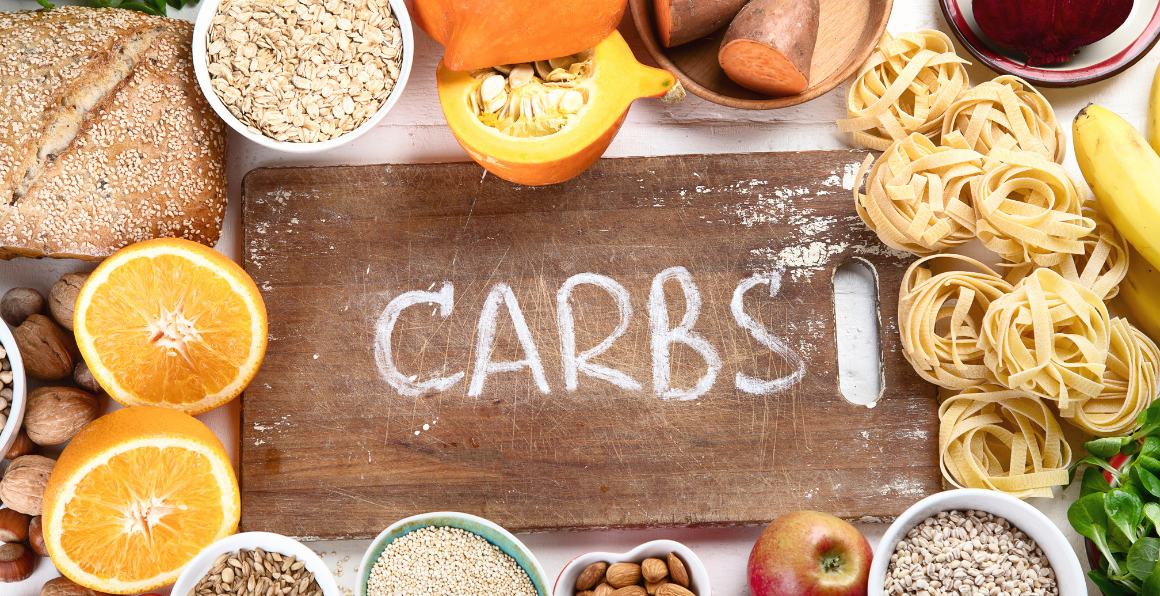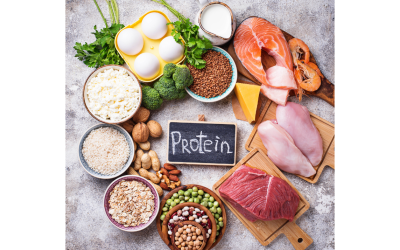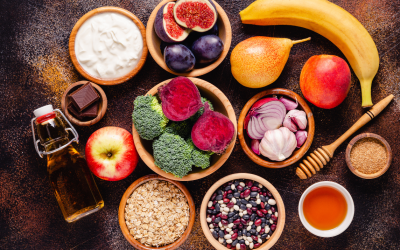Fermented foods, probiotic foods, gut microbiome – all these confusing words!
How are they connected to diabetes, weight problems, heart disease and our immune system?
Well it’s way more complicated than I understand but I am going to try and explain some of the connections for you and then give you some practical ideas for including fermented foods into your eating routine.
How do fermented foods help diabetes, weight management and other health problems?
Including fermented foods in your diet helps improve your gut microbiome and can lower inflammation.
In one small clinical study, 36 healthy adults were given either fermented foods or high fiber foods in their diet for 10 weeks. The fermented foods significantly improved their gut microbiome by increasing its diversity. Plus, their markers of inflammation in their blood were decreased, but the high fiber diet, even though it consisted of healthy foods, did not show these same results.
Does that mean we don’t need to eat foods with fiber?
No. We need the fiber foods because they are prebiotic foods, which means they feed the probiotic foods (the foods with the benefit of active live cultures). So what it comes down to is that we really need both and it’s all part of an overall healthy diet to prevent and reverse disease.
What is the gut microbiome?
Basically our gut microbiome is all of the microorganisms in our digestive tract, which includes up to 100 trillion microbes in our colon. There has been a lot of research lately in this area and many studies have shown that our food and drink choices affect our microbiome. And our microbiome health affects our immune system and overall health. It’s really a chain reaction.
There are certain bacteria that are healthier for us but what we want is a diverse microbiome because low diversity has been connected to diabetes and obesity.
There is still so much we don’t know about our gut microbiome and the role it plays in our health. But did you know that it produces essential amino acids and several vitamins including folate, vitamin K, biotin, B2, and B12?
We do know that a high processed, high sugar diet can damage our healthy gut and make us more prone to all kinds of health problems over time.
Where do I start with trying to get the benefit of fermented foods?
Did you know that changing your food choices to include some that are good for the gut such as fermented foods can change your microbiome in as little as 1 day? In other words, you get immediate results!
Keep trying different fermented foods.
This is my goal this month of October – to try Sauerkraut again. Often our tastes change over time. I have had it in my head for years that I don’t like sauerkraut but I honestly can’t remember the last time I tried it. So in my research I learned that if you are buying your sauerkraut instead of making your own, and you want to make sure you are getting probiotics in your sauerkraut. Look for refrigerated sauerkraut instead of pasteurized sauerkraut off the shelf. You will know if it contains probiotics if the container says “contains live and active cultures”, just like with yogurt.
What are examples of fermented foods?
Yogurt, kefir, sauerkraut, fermented cottage cheese, kimchi (traditional Korean dish made from fermented vegetables), kombucha (a fermented tea drink), tempeh or natto or miso – all made from fermented soybeans, or more common food and drinks such as sourdough bread, vinegar, beer, wine and cheese.
If you want a nice article on fermented foods to try with some recipes check out this article.
Are pickles a fermented food? There’s a great answer to this question in this article.
Eat less sugar and processed foods.
Too much sugar will have a negative effect on your gut bacteria balance, which can lead to low grade inflammation and insulin resistance – the root problem of type 2 diabetes. Over time the unhealthy gut and chronic inflammation can increase the risk of weight gain, heart disease, high blood pressure, type 2 diabetes, fatty liver and irritable bowel syndrome.
Decrease or avoid artificial sweeteners.
High amounts of artificial sweeteners including saccharin, sucralose (Splenda) and aspartame can change your gut microbiota and lead to more problems with blood sugar. Too much artificial sweeteners could make your gut more susceptible to having more bad bacteria and less good bacteria. Stevia is probably the safest artificial sweetener product since it is made from the natural Stevia plant. On a side note, I have grown my own Stevia plant and if you dry it and crush it you can use it to infuse sweetness into your water or tea or coffee.
I hope this article has given you a start on learning about the connection between fermented foods and diabetes, weight management and other health problems.
If you would like help with setting up a meal plan for diabetes, weight management or just healthier gut foods contact me!







0 Comments